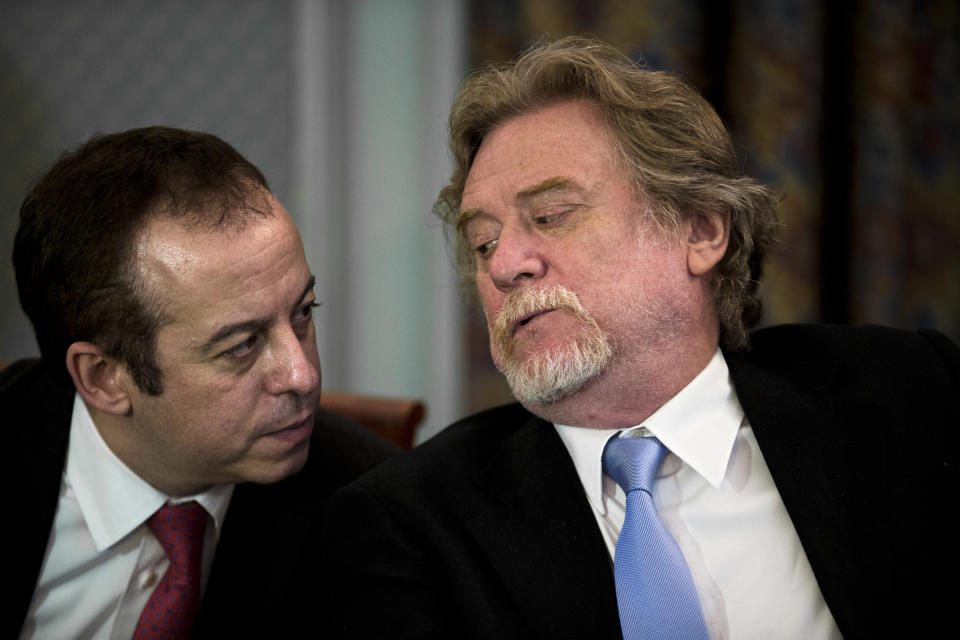Argentina's Clarin defiant in face of gov threats
BUENOS AIRES, Argentina (AP) — Grupo Clarin executives said Tuesday that they plan to exhaust every legal means possible of defying the Argentine government's Dec. 7 deadline for submitting plans to dismantle the media company that has become President Cristina Fernandez's leading critic.
The conglomerate is entirely focused on persuading the courts to extend an injunction barring enforcement of Argentina's law against media monopolies, company spokesman Martin Etchevers told foreign correspondents he invited to the headquarters of Clarin newspaper.
Grupo Clarin also owns television and radio stations, creates broadcast content, and provides access through its cable network to television channels and the Internet.
Argentina's congress passed a media reform law three years ago in the name of encouraging diversity in the country's media industry. Supporters argued that putting too much power in the hands of a few private companies is harmful in a democracy. But Clarin executives argued Tuesday that in reality, the law was designed with one goal in mind: destroying the president's leading critic.
"This government can't handle the existence of independent entities that can have an influence in society," Clarin editor Ricardo Kirschbaum said. "It seems to me that the government simply wants to have political control over the media. ... and I think that what' they're trying to achieve is the beginning of a process that enables them to hold onto power indefinitely."
The government has announced that it will auction off the broadcast licenses of any media company failing to show how it will comply with ownership limitations by the deadline.
But the group's Cablevision CEO Carlos Moltini said the company needs to grow even bigger to remain independent in the face of government threats and favoritism to its competitors. The cable network has invested $1.2 billion and hired 10,000 workers who have helped bring high bandwidth connections to millions of Argentine homes in recent years, he said.
Meanwhile, Cablevision's competitors — who are vying to bundle similar services through telephone lines and satellite signals — face no limits under the media law, and in a few years, most customers will be able to receive any content they want through the Internet. This is a main reason why the Clarin executives argue that the law is not only unconstitutional, but poorly conceived.
If Clarin doesn't grow stronger and quickly, they said, foreign companies could easily control the vast majority of the content reaching Argentine homes.


